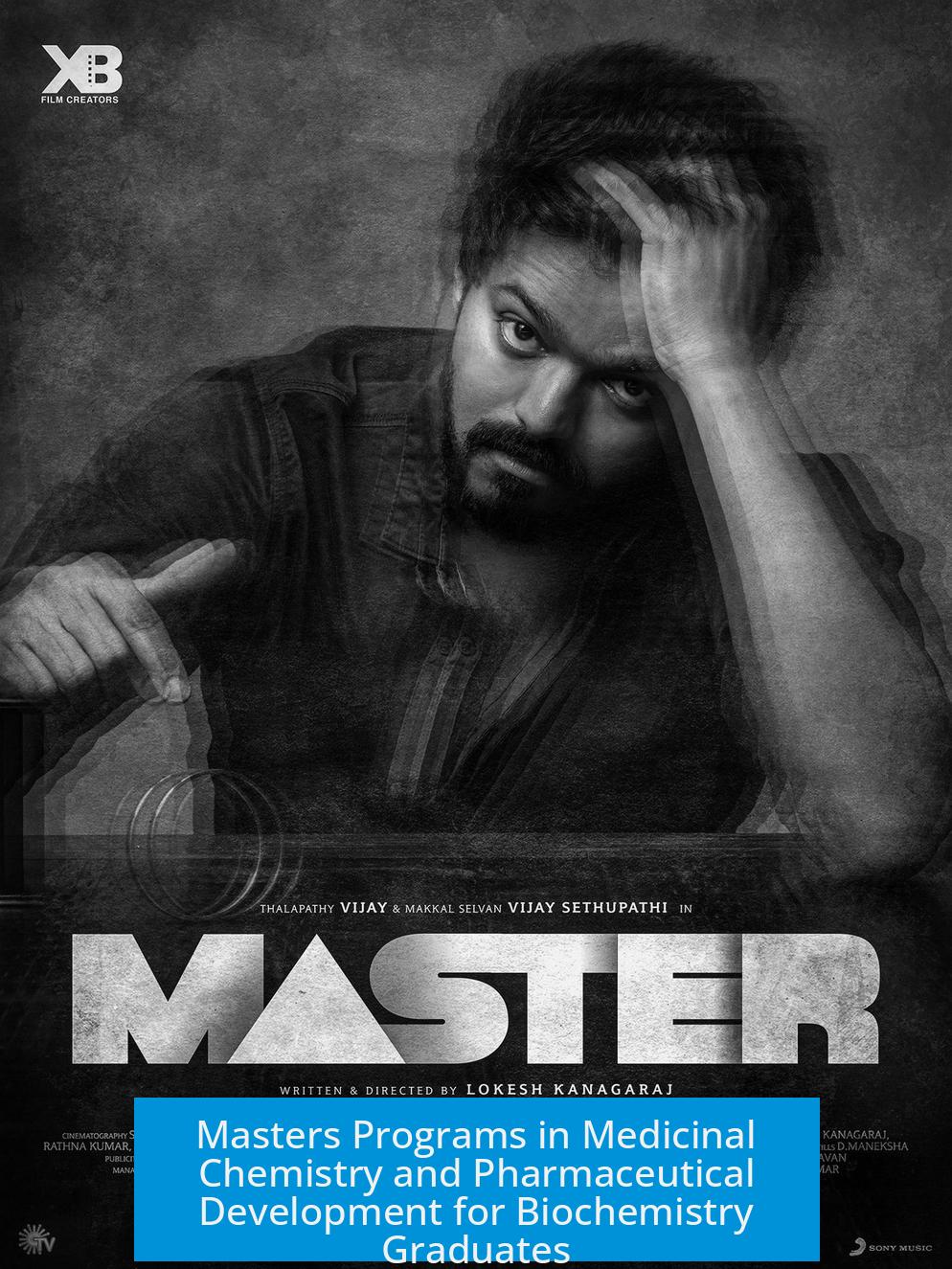Choosing a Good Master’s Program in Medicinal Chemistry, Pharmaceutical Development, and Drug Design for a Biochemistry Graduate
For a Biochemistry graduate aiming at a pharmaceutical career with a focus on medicinal chemistry, pharmaceutical development, or drug design, the optimal path involves earning a Master’s degree in Organic Chemistry combined with specialized internships, followed potentially by a PhD. This route emphasizes strong practical skills in molecule synthesis alongside drug design knowledge, aligning with industry preferences.
1. Understanding Industry Hiring Preferences
Pharmaceutical companies place high value on practical synthetic chemistry skills in entry-level medicinal chemistry roles. They commonly prefer candidates with a “pure” organic chemistry background rather than direct medicinal chemistry training.
- Entry-level jobs prioritize the ability to synthesize target molecules experimentally rather than initial design input.
- Drug design tends to be a team effort, with synthetic chemists synthesizing compounds based on guidance from senior scientists.
- Early career success depends heavily on strong organic synthesis and method development skills.
This implies that prospective students from a biochemistry background seeking pharmaceutical roles should solidify organic chemistry foundations through advanced study.
2. Recommended Academic Pathways
2.1 Master’s Program Focus
Experts recommend pursuing a Master’s degree in Organic Chemistry to gain essential synthetic skills. Within this framework, internships and research in natural product synthesis or method development offer valuable hands-on experience directly applicable to pharmaceutical work.
Examples of recommended specialties include:
- Natural product synthesis
- Reaction methodology development
- Medicinal chemistry-related organic synthesis
2.2 PhD as a Potential Next Step
A Master’s degree often represents the starting point. Many in the field pursue a PhD to enhance research depth and expand career opportunities, especially in competitive job markets like Germany or the US.
High-quality PhD research in a strong group improves employability significantly. The discipline remains organic chemistry, but with a focus on medicinal chemistry applications.
Some remarks from professionals on this topic:
“I recommend a PhD in organic chemistry aimed at a medicinal chemistry career.”
“Performing significant, good-quality research in a reputable group matters more than strict degree titles.”
3. US-Based Master’s Programs and Educational Context
In the United States, obtaining a specialized Master’s in medicinal chemistry or pharmaceutical development can be challenging because the academic system tends to favor direct entry into PhD programs.
- Few US universities offer standalone Master’s degrees dedicated exclusively to medicinal chemistry.
- PhD programs typically provide full funding and stipends, while Master’s candidates often self-fund.
- Some programs, like Pharmaceutical Sciences at University of Colorado Anschutz Medical Campus, offer Master’s degrees with strong pharmaceutical content.
- Universities such as University of Florida provide top pharmacy and graduate research programs but encourage students toward PhDs rather than terminal Master’s.
- Master’s degrees may sometimes be awarded en route to a PhD, especially for international students planning to return home.
This structure influences career planning for biochemistry graduates seeking pharmaceutical work in the US.
4. European Programs and Specializations
European universities offer more flexible Master’s choices relevant for pharmaceutical careers.
| University | Program | Specialization | Notes |
|---|---|---|---|
| Technical University Eindhoven (TUe), Netherlands | Biomedical Engineering (Master’s) | Drug discovery, PROTAGS technology | Thesis research in specialized groups focused on drug design and pharmacology |
Choosing research groups focusing on drug discovery allows students to tailor the Master’s experience to pharmaceutical development, integrating engineering and chemistry approaches.
5. Key Skills and Experience to Acquire
For a graduate aiming to enter medicinal chemistry or pharmaceutical development, the following competencies raise employability:
- Organic synthesis techniques: Mastery of molecule construction including complex natural products.
- Method development: Designing and optimizing chemical reactions.
- Drug discovery knowledge: Understanding molecular targets, structure-activity relationships (SAR).
- Interdisciplinary collaboration: Working with biologists, pharmacologists, and computational chemists.
- Research quality: Publishing or contributing to meaningful scientific projects.
6. Summary Recommendations for Biochemistry Graduates
- Pursue a Master’s in Organic Chemistry focusing on synthetic expertise and internships in natural product synthesis or method development.
- Consider continuing with a PhD in Organic Chemistry targeting medicinal chemistry to deepen expertise and research experience.
- In the US, evaluate Pharmaceutical Sciences Master’s options but prepare for potential progression to PhD.
- In Europe, investigate programs like Biomedical Engineering at TUe with drug discovery research clusters.
- Prioritize joining strong research groups offering practical drug design and synthetic chemistry experience.
- Focus on building a portfolio of experimental skills valued by pharmaceutical companies at the entry level.
Key Takeaways
- Pharmaceutical employers favor strong practical organic chemistry skills over early specialization in drug design.
- A Master’s in Organic Chemistry with internships is the preferred stepping stone for medicinal chemistry careers.
- Pursuing a PhD often enhances job prospects by deepening research competence.
- US institutions favor PhD funding over standalone Masters in this field.
- European programs, like Biomedical Engineering at TUe, allow targeted specialization in drug discovery.
- Joining high-quality research groups and gaining hands-on experience is essential.
What Master’s degree should a Biochem Bachelor pursue for a career in medicinal chemistry?
A Master’s in Organic Chemistry is recommended. Focus on internships in natural product synthesis or method development. This path builds the necessary skills valued by pharmaceutical companies.
Is a PhD necessary to work in drug design or pharmaceutical development?
A PhD is often advised, especially in Organic Chemistry with a medicinal chemistry focus. It improves job prospects and offers deeper research experience important for drug design roles.
Are there good standalone Master’s programs in medicinal chemistry in the US?
Few US schools offer standalone Master’s in medicinals chemistry. Most programs push students toward fully funded PhDs. Programs like Pharmaceutical Sciences at CU Anschutz provide solid foundational training.
What European programs are suitable for a pharmaceutical career from a Biochem background?
Biomedical Engineering at the Technical University Eindhoven is a strong choice. Specializations in drug discovery and groups working on PROTAGS offer relevant experience for drug design and development.
How do pharmaceutical companies view medicinal chemistry versus organic chemistry backgrounds?
Companies prefer candidates with strong organic chemistry skills focused on molecule synthesis. Medicinal chemistry specialization is often valued later, while early roles emphasize making target compounds.





Leave a Comment